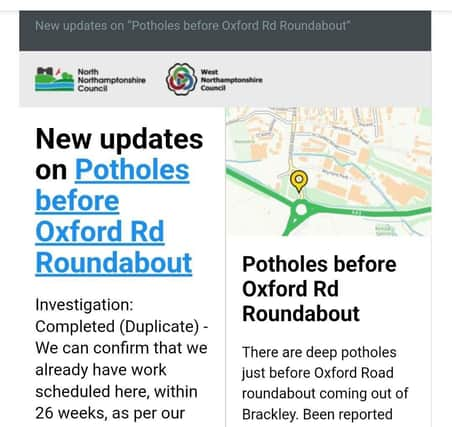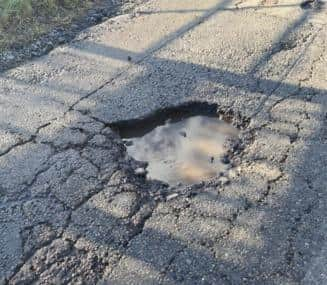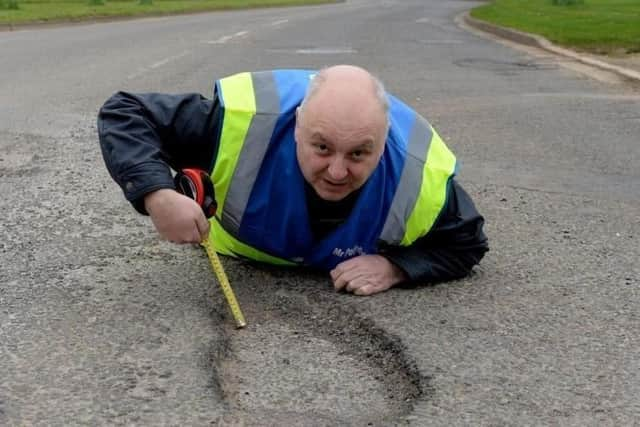'It's the Government's fault' - Banburyshire council says pothole decisions are ruled by government guidelines


West Northants Council (WNC) responded to claims by national campaigner Mr Pothole – Mark Morrell of Brackley – that the authority is bending the rules of the Highways Act to avoid paying compensation to drivers whose cars are damaged by the bad road surfaces.
He said the council, officially giving itself six months to repair some reported potholes, prevent it having to consider claims during that time.
Advertisement
Hide AdAdvertisement
Hide AdThis week the council’s Cabinet Member for Environment, Transport, Highways and Waste, Cllr Phil Larratt, said the council is given up to 26 weeks to repair the lowest priority potholes.


The defects highlighted by Mr Morrell that had been given 26 weeks to be fixed were described as ‘numberous deep potholes along the length of the Banbury Road’ – the A422 main route to Banbury used by heavy traffic. The council response said the due date for repairs was August 12, 2024.
Mr Larratt said the timescales are from national guidance from the Department for Transport.
“There are four categories for defects across the network which outline the order of priority, the severity of the problem and the response times for these. They are: 1 - 24 hours; 2 - seven days; 3 - 28 days and category 4 - 26 weeks.
Advertisement
Hide AdAdvertisement
Hide Ad"The priority given depends on several factors including category of road and size and depth of defect. Those which qualify as a priority 4 are deemed to not need immediate action and can be dealt with in up 26 weeks. The timescales are from national level guidance provided by the DFT."


Mr Larratt said councils’ claims policies align with a national legal framework which they cannot amend.
"Claims are paid when there is proven fault under this framework. This includes the requirement to prove we have done what we said we would. The work procedure is outlined by a national legal framework,” he said. “The council receives reports of defects via multiple channels. We can then investigate them and carry out any essential repairs in line with our programme of works.”
Mr Larratt said councils nationwide are facing a reduction in Government highways funding and further investment is required for roads to provide a long-term solution.
Advertisement
Hide AdAdvertisement
Hide Ad"At WNC we have invested in new materials and new equipment which allows (us to) repair road defects and tackle the areas we can, proactively and reactively. We are committed to seeking further funding into new investments which will help improve the conditions of our roads.”
Responding to Mr Morrell’s claim that outsourcing had lost the council quality control, Mr Larratt said it allows the council to ‘control our risk and expenditure and protect our budgets long term’.
"We are on a journey of continuous improvement including investing in new technology to deliver better quality repairs and always welcome constructive feedback where we can do things better.
"There are a huge number of things we know we can be more open about and do better and as we work towards doing these we will share the outcomes with residents and any relevant stakeholders.”
The Banbury Guardian has asked for a copy of the national guidance for repairs and legal framework for claims.